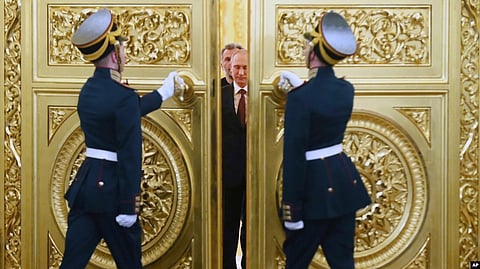Economic Fallout
The West has pummeled Russia with unprecedented sanctions since the February 24 invasion, freezing bank accounts and assets of Kremlin insiders, imposing export restrictions, curtailing Russian energy exports, and other measures.
To date, however, Russia's economy has held up surprisingly well. Forecasts by both Russian and Western experts say the economy may slide between 4 and 4.7 percent this year, well above the 10 to 12 percent decline that had been predicted earlier in the spring.
Credit for that success has gone largely to the head of the Central Bank, Elvira Nabiullina, and conservative fiscal planning that had given Russia one of the largest sovereign rainy-day funds in the world.
Unemployment has hovered at around 4 percent, though economists say that strong number is due to oddities of Russian employment practices, where employers don't lay off employees, but merely cut their working hours, or wages, drastically.
But the sanctions are now rippling through the economy more deeply, and more widely, particularly as European countries slow purchases of Russian oil and gas, as well as coal. The government's budget surplus has shriveled, as oil and gas revenues have declined.
And Russia's workforce is about to decline noticeably. Tens, possibly, hundreds of thousands of working-age men are being mobilized to fight in Ukraine. And hundreds of thousands of Russian men and women have fled the country.
In his September 21 speech, Putin said he had also ordered state defense manufacturers to increase production of weaponry and equipment for the newly mobilized troops. That will provide a jolt of investment to ramp up production, though it's unclear what the multiplier effect of that will be.
More broadly, the Kremlin is looking to markedly increase defense and security spending over the next two years, according to a three-year fiscal plan seen by Bloomberg.
In the speech, listen to see if Putin tries to prep Russians for more austerity and economic hardship in the coming months, to try and gird the population for a further decline in living standards.


